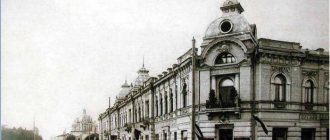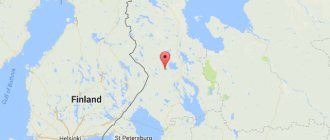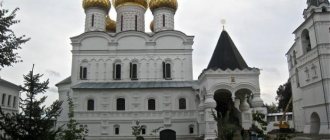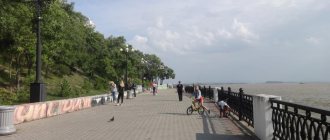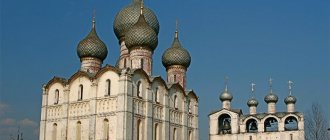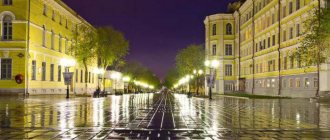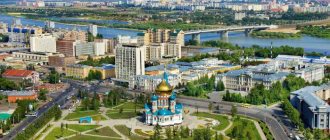This term has other meanings, see Maisky.
| City May Kabard.-Cherk. Maisuke A country
| |||||||||||||||||||||||||||||||||||||||||
| May Moscow |
| Nalchik May |
K: Settlements founded in 1824
Maysky
- a city of regional significance in the Republic of Kabardino-Balkaria. Administrative center of the municipal formation "Urban settlement Maysky" and the Maysky district.
Geography
The city is located in the central part of the Maysky district, between the Cherek and Terek rivers. It is located 45 km northeast of the city of Nalchik and 12 km south of the city of Prokhladny.
It borders on the lands of settlements: Kotlyarevskaya in the south, Psykod in the southwest, Novo-Ivanovskoye in the west, Oktyabrskoye in the northwest, Sarskoye in the north, Krasnoarmeyskoye and Dzhulat in the east.
The city is located on the sloping Kabardian Plain, in the flat zone of the republic. The average altitude in the city is 217 meters above sea level. The terrain consists of relatively flat areas without sharp fluctuations in relative heights. To the southeast and southwest of the city there are low-altitude hills with a developed system of gullies.
The hydrographic network in the city is represented by the Cherek, Terek and Demenyuk rivers (flowing through the city center). There are also many artificial reservoirs (quarries) in the city. The area is rich in underground springs and abounds in fresh water resources. The depth of groundwater in the city is only about 2-3 meters.
Located in a semi-arid temperate climate zone ( Dfa
according to the Köppen climate classification)[3]. Summer is hot, and temperatures in July-August often rise above +35°C. Winter is mild with average January temperatures of about +1°C...-3°C... Frosts below -15°C are extremely rare; the city's infrastructure is not designed for such temperatures. The average annual precipitation is about 600 mm. In the period from April to July there are heavy rains with hail; in August, dry winds blowing from the Caspian lowland often reach the city territory.
Administrative structure
There are 16 settlements in the Maysky district, consisting of 1 urban and 4 rural settlements:
| № | Urban and rural settlements | Administrative center | Number of settlements | Population | Area, km2 |
| 1 | Urban settlement Maysky | Maysky city | 6 | 27 507[2] | 138.3 |
| 2 | Rural settlement Novo-Ivanovskoye | village Novo-Ivanovskoe | 6 | 3111[2] | 68.3 |
| 3 | Rural settlement Oktyabrskoye | Oktyabrskoye village | 1 | 989[2] | 24 |
| 4 | Rural settlement village Alexandrovskaya | Alexandrovskaya village | 1 | 3705[2] | 93.1 |
| 5 | Rural settlement Kotlyarevskaya village | Kotlyarevskaya village | 2 | 3401[2] | 60.9 |
Settlements
The footnotes to the name of the settlement indicate the administrative-territorial affiliation
of Maysky[15]
| ↗26 831[2] | |
| Alexandrovskaya[16] | ↘3705[2] |
| Kotlyarevskaya[17] | ↘3468[6] |
| Novo-Ivanovskoye[18] | ↘2307[6] |
| Oktyabrskoye[19] | ↘989[2] |
| Sarskoe[15] | ↘425[6] |
| ↘313[6] | |
| Koldrasinsky[18] | ↘219[6] |
| Pravo-Urvansky[18] | ↘115[6] |
| Prishibo-Malkinskoye[15] | ↘85[6] |
| Lesnoye[15] | ↘65[6] |
| Slavic[18] | ↗61[6] |
| ↘56[6] | |
| Baksansky[18] | ↘37[6] |
| Baksan[15] | ↘30[6] |
| Railway Booth 612 km[17] | ↘0[6] |
Story
In 1824, in the narrowest place between the rivers Cherek (from the west) and Terek (from the east), a military fortification was founded in the form of a small square quadrangle with a deep ditch surrounded by a palisade. Behind the fence, among the barracks dug into the ground, a small house for visitors stood out.
In 1829, the military fortification was given the status of “stanitsa”, and the village was given the name Prishibskaya.
In May 1829, during a trip to Tiflis, A.S. stopped and spent the night in the fortification. Pushkin. Nowadays, in the center of the city, near the railway, there is a century-old oak tree, named in memory of this - Pushkinsky.
At the end of the 19th century, with the construction of the Kotlyarevskaya railway station, the rapid growth and development of the village of Prishibskaya began. Immigrants from the central provinces of the Russian Empire began to settle here, moving to the North Caucasus in search of a better life.
In 1925, at a general meeting of residents of the village of Prishibskaya and the railway village of Kotlyarevsky, a decision was made to unite the two settlements. The united settlement was given the name Maysky, and was given the status of an urban-type settlement.
In 1938, the village became the administrative center of the Maysky district of the Kabardino-Balkarian Autonomous Soviet Socialist Republic.
During the Great Patriotic War, the village was occupied by German troops for about three months. However, no serious damage was caused to the village's economy.
In 1965, the village of Maisky received city status and was transformed into a city of regional subordination of the KBASSR (now Kabardino-Balkaria).
Local government
Administration of the Maysky municipal district - Maysky city, st. Engels No. 68.
The structure of local government bodies of the municipality is:
Head of local administration
- Shagin Sergey Ivanovich
Chairman of the Local Government Council
- Karmaliko Mikhail Dmitrievich
List of deputies of the Local Government Council of the Maysky Municipal District of the 6th convocation (2012-206)[20]. Bereznev Sergey Nikolaevich
| Gorbulinskaya Kulistana Apasovna |
| Datchieva Tatyana Khuseynovna |
| Denisenko Vasily Nikolaevich |
| Karmaliko Mikhail Dmitrievich |
| Karpenko Svetlana Vladimirovna |
| Klyus Viktor Grigorievich |
| Kuchmasov Vladimir Petrovich |
| Orlov Alexander Vasilievich |
| Protasov Vladimir Alexandrovich |
| Rabani Nina Alekseevna |
| Rudik Andrey Vladimirovich |
| Savelyev Gennady Valerievich |
| Son Yulia Afronyaevna |
| Tokar Vitaly Anatolievich |
| Fedorenko Alexander Petrovich |
| Chepurnoy Vasily Andreevich |
| Yashchenko Alexander Vladimirovich |
Education
Secondary education
- Gymnasium No. 1 - st. Gagarina, 10/11.
- Secondary school No. 2 - st. Kirova, 227.
- Secondary school No. 3 - st. Labor 48.
- Secondary school No. 5 - st. Gorky, 116.
- Secondary school No. 10 - st. Medvedeva, 10.
- Secondary school No. 14 - st. Komarova, 13 "a".
Preschool education
- Progymnasium No. 13 - st. Gorky, 112.
- Primary school Kindergarten "Rainbow" - st. Engelsa, 63.
- Primary school Kindergarten No. 2 - st. Kirova, 53.
- Primary school Kindergarten "Skazka" - st. May 9, 2.
- Primary school Kindergarten "Kazachok" - st. Kalinina, 94.
- Primary school Kindergarten "Beryozka" - st. Komarova, 13.
- Primary school Kindergarten “Smile” - st. Engelsa 63/2.
- Primary school Kindergarten "Swallow" - st. Lenina, 42.
- Primary school Kindergarten "Romashka" - st. Chekhova, 13.
Other educational centers
- Center for Children's Creativity - st. Oktyabrskaya, 46.
- Children's and youth sports school - st. Sverdlova, 64.
Population
| Population | ||||||
| 2002[4] | 2009[5] | 2010[6] | 2011[7] | 2012[8] | 2013[9] | 2014[10] |
| 40 051 | ↘39 959 | ↘38 625 | ↘38 541 | ↗38 572 | ↘38 327 | ↘38 232 |
| 2015[11] | 2016[2] | |||||
| ↗38 518 | ↗38 713 | |||||
Density - 100.62 people/km²
Urbanization
69.31% of the district's population live in urban areas (the city of Maisky).
National composition
According to the 2010 All-Russian Population Census[12]:
| People | Number of people, people | Share of the total population, % |
| Russians | 28 342 | 73,4 % |
| Turks | 3 502 | 9,1 % |
| Kabardians (Circassians) | 2 012 | 5,2 % |
| gypsies | 1 216 | 3,1 % |
| Koreans | 921 | 2,4 % |
| Balkars | 535 | 1,4 % |
| Ukrainians | 478 | 1,2 % |
| other | 1 619 | 4,2 % |
| Total | 38 625 | 100 % |
Sex and age composition
According to the 2010 All-Russian Population Census[13]:
| Age | Men, persons | Women, persons | Total number, people | Share of the total population, % |
| 0 – 14 years | 3 876 | 3 717 | 7 593 | 19,6 % |
| 15 – 59 years | 11 213 | 12 797 | 24 010 | 62,2 % |
| from 60 years old | 2 425 | 4 597 | 7 022 | 18,2 % |
| Total | 17 514 | 21 111 | 38 625 | 100,0 % |
Men - 17,514 people. (45.3%). Women - 21,111 people. (54.5%)[14].
The average age of the population is 38.0 years. The median age of the population is 37.4 years.
The average age of men is 35.4 years. The median age of men is 34.5 years.
The average age of women is 40.2 years. The median age of women is 40.0 years.
Excerpt characterizing Maisky (Kabardino-Balkaria)
“Quant a celui qui a conseille ce camp, le camp de Drissa, [As for the one who advised the Drissa camp,” said Paulucci, while the sovereign, entering the steps and noticing Prince Andrei, peered into an unfamiliar face . – Quant a celui. “Sire,” continued Paulucci desperately, as if unable to restrain himself, “qui a conseille le camp de Drissa, je ne vois pas d’autre alternative que la maison jaune ou le gibet.” [As for the man who recommended the camp at Drisei, sir, in my opinion, there are only two places for him: the yellow house or the gallows.] - Without listening to the end and as if not having heard the words of the Italian, the sir, having learned Bolkonsky, graciously turned to him: “I’m very glad to see you, go to where they gathered and wait for me.” - The Emperor went into the office. Prince Pyotr Mikhailovich Volkonsky, Baron Stein, followed him, and the doors closed behind them. Prince Andrei, using the permission of the sovereign, went with Paulucci, whom he knew back in Turkey, into the living room where the council was meeting. Prince Pyotr Mikhailovich Volkonsky held the position of chief of staff of the sovereign. Volkonsky left the office and, bringing cards into the living room and laying them out on the table, conveyed the questions on which he wanted to hear the opinions of the assembled gentlemen. The fact was that during the night news was received (later turned out to be false) about the movement of the French around the Drissa camp. General Armfeld began to speak first, unexpectedly, in order to avoid the difficulty that had arisen, proposing a completely new, inexplicable position away from the St. Petersburg and Moscow roads, on which, in his opinion, the army should have united and await the enemy. It was clear that this plan had been drawn up by Armfeld long ago and that he now presented it not so much with the aim of answering the proposed questions, which this plan did not answer, but with the aim of taking advantage of the opportunity to express it. This was one of the millions of assumptions that could be made, just as well as others, without having any idea of what character the war would take. Some disputed his opinion, some defended it. The young Colonel Toll, more ardently than others, disputed the opinion of the Swedish general and during the argument took out a covered notebook from his side pocket, which he asked permission to read. In a lengthy note, Toll proposed a different campaign plan, completely contrary to both Armfeld’s plan and Pfuel’s plan. Paulucci, objecting to Tol, proposed a plan for moving forward and attacking, which alone, according to him, could lead us out of the unknown and the trap, as he called the Dris camp, in which we were located. Pfuhl and his translator Wolzogen (his bridge in court relations) remained silent during these disputes. Pfuhl only snorted contemptuously and turned away, showing that he would never stoop to object to the nonsense that he was now hearing. But when Prince Volkonsky, who led the debate, called him to express his opinion, he only said: “Why ask me?” General Armfeld proposed an excellent position with an open rear. Or attack von diesem italienischen Herrn, sehr schon! [this Italian gentleman, very good! (German)] Or retreat. Auch gut. [Also good (German)] Why ask me? - he said. – After all, you yourself know everything better than me. - But when Volkonsky, frowning, said that he was asking his opinion on behalf of the sovereign, Pfuel stood up and, suddenly animated, began to say: “They ruined everything, confused everything, everyone wanted to know better than me, and now they came to me: how to fix it.” ? Nothing to fix. Everything must be carried out exactly according to the principles I have laid out,” he said, banging his bony fingers on the table. – What is the difficulty? Nonsense, Kinder spiel. [children's toys (German)] - He went up to the map and began to speak quickly, pointing his dry finger at the map and proving that no accident could change the expediency of the Dris camp, that everything was foreseen and that if the enemy really goes around, then the enemy must inevitably be destroyed. Paulucci, who did not know German, began asking him in French. Wolzogen came to the aid of his principal, who spoke little French, and began to translate his words, barely keeping up with Pfuel, who quickly proved that everything, everything, not only what happened, but everything that could happen, was all foreseen in his plan, and that if there were now difficulties, then the whole fault was only in the fact that everything was not executed exactly. He laughed ironically incessantly, argued, and finally contemptuously gave up proving, just as a mathematician gives up verifying in various ways the correctness of a problem that has once been proven. Wolzogen replaced him, continuing to express his thoughts in French and occasionally saying to Pfuel: “Nicht wahr, Exellenz?” [Isn't that true, Your Excellency? (German)] Pfuhl, like a heated man in battle hitting his own, angrily shouted at Wolzogen: - Nun ja, was soll denn da noch expliziert werden? [Well, yes, what else is there to interpret? (German)] - Paulucci and Michaud attacked Wolzogen in French in two voices. Armfeld addressed Pfuel in German. Tol explained it in Russian to Prince Volkonsky. Prince Andrei silently listened and observed. Of all these persons, the embittered, decisive and stupidly self-confident Pfuel most excited the participation of Prince Andrei. He alone, of all the people present here, obviously did not want anything for himself, did not harbor enmity towards anyone, but wanted only one thing - to put into action the plan drawn up according to the theory he had developed over years of work. He was funny, unpleasant in his irony, but at the same time he inspired involuntary respect with his boundless devotion to the idea. In addition, in all the speeches of all the speakers, with the exception of Pfuel, there was one common feature that was not present at the military council in 1805 - it was now, although hidden, a panicky fear of the genius of Napoleon, a fear that was expressed in everyone objection. They assumed everything was possible for Napoleon, waited for him from all sides, and with his terrible name they destroyed each other’s assumptions. Only Pfuel, it seemed, considered him, Napoleon, to be the same barbarian as all the opponents of his theory. But, in addition to a feeling of respect, Pful instilled in Prince Andrei a feeling of pity. From the tone with which the courtiers treated him, from what Paulucci allowed himself to say to the emperor, but most importantly from the somewhat desperate expression of Pfuel himself, it was clear that others knew and he himself felt that his fall was close. And, despite his self-confidence and German grumpy irony, he was pitiful with his smoothed hair at the temples and tassels sticking out at the back of his head. Apparently, although he hid it under the guise of irritation and contempt, he was in despair because now the only opportunity to test it through vast experience and prove to the whole world the correctness of his theory eluded him. The debate continued for a long time, and the longer it continued, the more the disputes flared up, reaching the point of shouting and personalities, and the less it was possible to draw any general conclusion from everything that was said. Prince Andrei, listening to this multilingual conversation and these assumptions, plans and refutations and shouts, was only surprised at what they all said. Those thoughts that had long and often occurred to him during his military activities, that there is and cannot be any military science and therefore there cannot be any so-called military genius, now received for him the complete evidence of the truth. “What kind of theory and science could there be in a matter in which the conditions and circumstances are unknown and cannot be determined, in which the strength of the war actors can be even less determined? No one could and cannot know what the position of our and the enemy’s army will be in a day, and no one can know what the strength of this or that detachment will be. Sometimes, when there is no coward in front who will shout: “We are cut off!” - and he will run, and there is a cheerful, brave man in front who will shout: “Hurray! - a detachment of five thousand is worth thirty thousand, as at Shepgraben, and sometimes fifty thousand flee before eight, as at Austerlitz. What kind of science can there be in such a matter, in which, as in any practical matter, nothing can be determined and everything depends on countless conditions, the meaning of which is determined in one minute, about which no one knows when it will come. Armfeld says that our army is cut off, and Paulucci says that we have placed the French army between two fires; Michaud says that the disadvantage of the Dris camp is that the river is behind, and Pfuhl says that this is its strength. Toll proposes one plan, Armfeld proposes another; and everyone is good, and everyone is bad, and the benefits of any situation can only be obvious at the moment when the event occurs. And why does everyone say: a military genius? Is the person who manages to order the delivery of crackers in time and go to the right, to the left, a genius? It is only because military men are invested with splendor and power, and the masses of scoundrels flatter the authorities, giving it unusual qualities of genius, that they are called geniuses. On the contrary, the best generals I have known are stupid or absent-minded people. The best Bagration, - Napoleon himself admitted this. And Bonaparte himself! I remember his smug and limited face on the Austerlitz Field. Not only does a good commander not need genius or any special qualities, but, on the contrary, he needs the absence of the best highest, human qualities - love, poetry, tenderness, philosophical inquisitive doubt. He must be limited, firmly convinced that what he is doing is very important (otherwise he will lack patience), and only then will he be a brave commander. God forbid, if he is a person, he will love someone, feel sorry for him, think about what is fair and what is not. It is clear that from time immemorial the theory of geniuses was falsified for them, because they are the authorities. The credit for the success of military affairs does not depend on them, but on the person in the ranks who shouts: lost, or shouts: hurray! And only in these ranks can you serve with confidence that you are useful! “Thus, Prince Andrei thought, listening to the talk, and woke up only when Paulucci called him and everyone was already leaving. The next day, at the review, the sovereign asked Prince Andrei where he wanted to serve, and Prince Andrei lost himself forever in the court world, not asking to remain with the sovereign’s person, but asking permission to serve in the army. Before the opening of the campaign, Rostov received a letter from his parents, in which, briefly informing him about Natasha’s illness and about the break with Prince Andrei (this break was explained to him by Natasha’s refusal), they again asked him to resign and come home. Nikolai, having received this letter, did not try to ask for leave or resignation, but wrote to his parents that he was very sorry about Natasha’s illness and breakup with her fiancé and that he would do everything possible to fulfill their wishes. He wrote to Sonya separately.
Economy
The basis of the May region's industry is the food and processing industry. On the territory of the district, as of January 1, 2006, there are 14 industrial enterprises: 9 food industry enterprises, 1 enterprise for the production of building materials, 1 mechanical engineering enterprise, 1 enterprise for the production of medical equipment, 2 enterprises for the production of steam and hot water. In 2013, the construction of a pure polymer plant in the village of Oktyabrskoye was officially launched.
Maysky district is one of the leading agricultural regions of the republic. There are 7 agricultural enterprises located on its territory.

